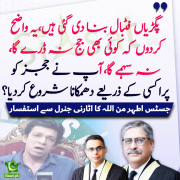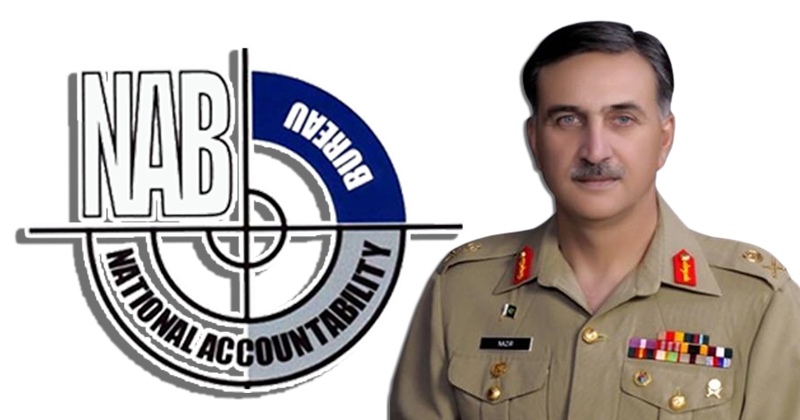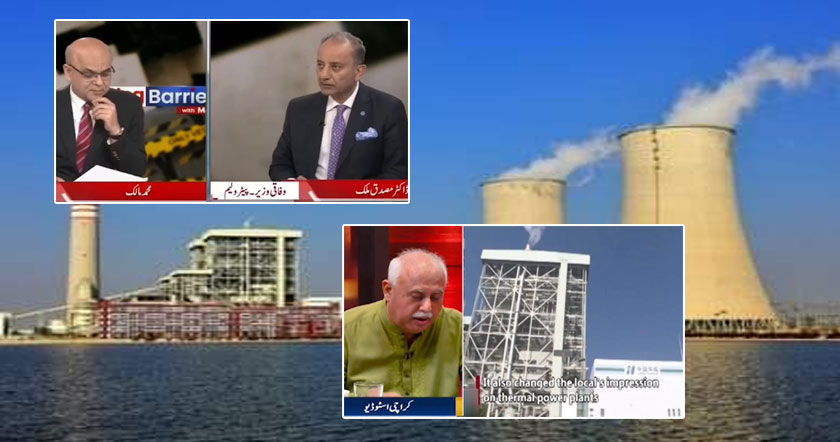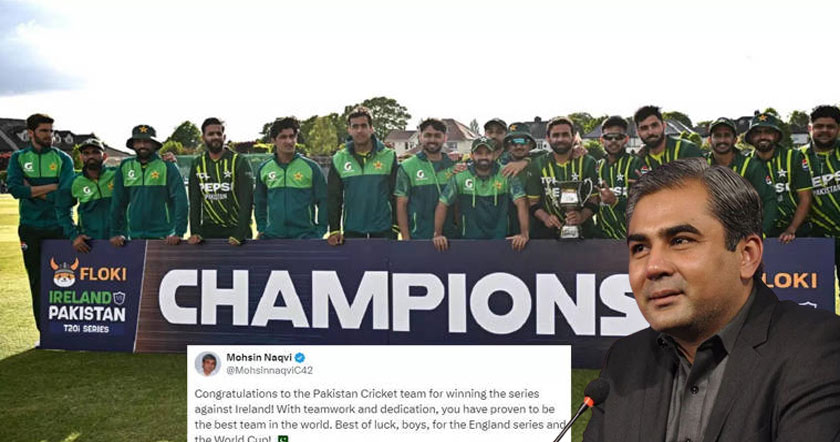
( 1 ) HIS MAJESTY KING ABDULLAH BIN ABDUL AZIZ AL SAUD, King of Saudi Arabia, Custodian of the Two Holy Mosques
King Abdullah bin Abdul Aziz al Saud of the Kingdom of Saudi Arabia, Custodian of the Two Holy Mosques is the most influential Muslim in the world. Saudi Arabia is geopolitically important as the most powerful Arab nation in the region. King Abdullah also garners influence globally for Saudi Arabias international role as an exporter of crude oil and refined petroleum products.
Custodian of the Two Holy Mosques
King Abdullah has significant influence in the global Muslim community through his custodianship of the two holy sites of Mecca and Medina. Mecca is the main pilgrimage site for 1.5 billion Muslimsof which 2.4 million fulfill their religious obligation annually.
Controls Worlds Largest Oil Reserves
King Abdullah reigns over a land of massive crude oil reservesSaudi Arabia has approximately 25 percent of the worlds proven oil reservesmaking him a key player in the global petroleum industry.
Controls Largest Dawa Network
King Abdullah is also head of the most extensive dawa network of missionary Muslims in the world, promoting the Salafi brand of Islam. Salafism is historically rooted in Saudi Arabia, and owes its global spread to financial backing from the Saudi Royal Family
----------------------------------------------------------------
( 2 ) HIS EXCELLENCY RECEP TAYYIP ERDOGAN, Prime Minister of the Republic of Turkey
Since 2003, Erdogan has been the Prime Minister of one of the most populous and economically developed Muslim-majority countries in the world. Although Turkey has been run according to the ideals of secularism
since the end of the Ottoman Empire, the populace is predominantly religious, and primarily Muslim. Erdogan is also the chairman of the ruling AK Party (Adalet ve Kalkınma Partisi, the Justice and Development
Party) though he has announced this year the concession of his parliamentary seat in 2015. The AK Partys official ideology is conservative democracy; an attempt to create a Muslim democracy
in an aggressively secular country.
-----------------------------------------------------------------
(3) HIS EMINENCE GRAND AYATOLLAH HAJJ SAYYID ALI KHAMENEI, Supreme Leader of the Islamic Republic of Iran
Grand Ayatollah Khamenei is the Supreme Leader of the Islamic Republic of Iran. He was born in Mashhad in the far north east of Iran, and studied in the leading Iranian religious seminary in Qom, before becoming involved in the struggle with the Pahlavi Regime in the sixties and seventies.
Champion of Iranian Solidarity
Although Khamenei was initially criticized for endorsing the June 2009 re-election of President Mahmoud Ahmadinejad, he has been acclaimed for his response to the post-election turmoil. He ordered the closing of the Kahrizak detention centre in response to reports of prisoner abuse and deaths. He has called for solidarity within Iran, in light of the 31st anniversary of the Islamic republic on February 11, 2010.
Defender of the Islamic Republic
As a response to the June sanctions on Iran passed by the U.N. Security council Khamenei publicly denounced the efforts of the U.S. and Western powers as weak attempts at 'bullying' Iran, in an effort to garner influnce as a defender of the Islamic Republic. This comes at a time when his support of President Ahmadinejad is seen as a blot on his influence. July protests against Ahmadinejad's tax increase on Iran's merchants were marked by public outcry against the Supreme Leader.
Supreme Leader, Velayat-e Faqih
Khameneis current influence stems from his powerful position as a religious leader, which gives him a unique role in political affairs. His job is to enact the Velayat-e Faqihthe guardianship of the jurist. In real terms this means a system where scholars of fiqh (Islamic jurisprudence)
have a controlling say in the political affairs of the state. The rule of the jurist was a concept created by Ayatollah Ruhollah Khomeini, based on ideas that have run through Iranian political history since the time of Shah Ismailwho was the first to make Shia Islam the national religion of Iran. The rule of the jurist was conceived in a battle against oppression as a way of safeguarding the Iranian nation from tyranny, giving the final say in all matters to a group of religious scholars, the Council of Guardians. This Council is headed by a chief arbitratorthe Supreme Leader.
Leader of Shia Revolution
Khamenei gains much of his influence in Iran from his role as a leader of the Islamic Revolution in Iran. The Islamic Republic of Iran was forged out of the 1979 Revolution. Combating what many saw as the tyrannical rule of the Shah, Khamenei joined the Society of Combatant Clergy that staged demonstrations mobilizing many of the protests leading to the Shahs overthrow. After the revolution in 1979, Khamenei was one of the founding members of the Islamic Republic Party, and a member of the assembly of experts that was responsible for drafting Irans new constitution.
-------------------------------------------------------------------
(4) HIS MAJESTY KING ABDULLAH II BIN AL HUSSEIN, King of the Hashemite Kingdom of Jordan
King Abdullah II of Jordan has influence in Jordan and around the world due to his lineage in the Hashemite family, his custodianship of Jerusalem and activism on various frontsfrom freedom of the press and reformed domestic policy to international diplomacy. In his reign as King, he is noted for having developed Jordans free market economy, arts and culture scene, as well as addressing issues of homelessness and poverty.
Prophetic Lineage
King Abdullah II is a member of the Hashemite family and a 41st generation direct descendant of the Prophet Muhammad through the lineage of the Prophets grandson al Hasan. The Hashemites, or Bani Hashem, link back to the tribe of Quraish. Hashem was the name of the Prophets great-grandfather. King Abdullah II is thus a member of the Ahl al Bayt (the family of the Prophet Muhammad).
Ruling Dynasty
The Hashemite family ruled Mecca from 1201 CE to 1925 CE and other branches of the family ruled Mecca from 500 CE, when Qusayy, the grandfather of Hashem, became Meccas first king. The Hashemite dynasty is the oldest ruling dynasty in the Islamic world, and the second-oldest in the world, after that of Japan.
Custodian of Holy Sites in Jerusalem
As custodian of the Muslim holy sites in the city of Jerusalem, King Abdullah II maintains a unique prestige in the region. He has gone on record in March 2010 to condemn Israels inclusion of West Bank religious sites in its national heritage list.
Islamic Outreach
King Abdullah II has proven influence at the forefront of a global intra-faith movement, through the creation of the Amman Message; a call for greater intra-religious tolerance and unity in Islam that was endorsed by representatives from all major Muslim groups in 2004. King Abdullah II is also credited with the Royal Aal al Bayt Institute for Islamic Thoughts most authoritative website on the Quran and tafsir or Quranic exegesis (AlTafsir.com). An extensive resource for Islamic scholarship, AlTafsir.com includes Arabic texts from over 90 commentaries of the Quran, Hadith texts, among other tools for research in the Quranic sciences, with daily hits in the thousands. King Abdullah II is also noted for founding the new World Islamic Sciences and Education University in Jordan (جامعة العلوم الاسلامية العالمية).
King Abdullah II is also lauded as an interfaith leader for the 2007 initiative, A Common Worda groundbreaking initiative in Christian-Muslim engagement (The Official Website of A Common Word).
Peace Activist
King Abdullah II is the leading player in the dialogue for peace between the Palestinians and Israelis. He has openly called for discussion in the negotiations toward a two-state solution.
-------------------------------------------------------------------
(5) HIS MAJESTY KING MOHAMMED VI, King of Morocco
Known as Amir al Muminin, or Commander of the Faithful, King Mohammad VI of Morocco is lauded for his domestic reform policies and pioneering efforts in modernizing Morocco and countering terrorism. He tackles issues of poverty, vulnerability and social exclusion at home, and has improved foreign relations. King Mohammad VI is an influential leader, mainly due to his position as the only legitimate contender for the Islamic Caliphate, for his control of the network of Muslims following the Maliki school of Islamic jurisprudence, and as a leading monarch in Africa.
Contender for the Caliphate
As successor to a 350 year-old dynasty, King Mohammad VIs lineage makes him the only legitimate contender for the Islamic Caliphate. The Alaouite Dynasty links back to the Prophet Muhammad. King Mohammad VI possesses the only authentic claim to an Islamic Caliphate, if one were to be established. Indeed, the Moroccans never recognized the Ottoman Caliphate on the grounds that the Ottomans were not descendents of the Prophet Muhammad.
Control of Maliki Network
King Mohammad VI also leads the oldest Islamic establishment of Maliki Muslims. The Maliki madhab is the third largest school of jurisprudence in Islam. This school bases its rulings on the Quran and Hadith but also predominantly derives its practices from the work of Malik ibn Anas (711-795 CE) and his texts, the Al Muwatta and Al Mudawana. Since early in his reign, King Mohammed VI has implemented the Mudawana family law code that gives rights to women in divorce and property ownership, as well as citizenship to children born to non-Moroccan fathers. He has also commissioned the Islamic Affairs Ministry to train women preachers, or Morchidat, who are now active chaplains to Moroccans across the globe.
Huge Influence over Muslims in Africa
King Mohammed VI leads the largest African monarchy, with a population of 35 million. Besides political links, Morocco maintains strong spiritual ties with Muslims all over Africa. Morocco is the site of the tomb of a highly revered Sufi sheikh, Mawlana Ahmed Ibn Mohammed
Tijani al Hassani al Maghribi (1735-1815 CE), the founder of the Tijaniyya Sufi order. The shrine attracts millions of people from across the continent. Morocco is also recognized as a source for the spread of Islam through West Africa. Thus, King Mohammed VI exercises vast amounts of power and influence over Muslims in Morocco, throughout Africa, and the rest of the world. He leads one of the most stable constitutional monarchies in the region, which is also the center of a moderate, flourishing Muslim culture.
Patron of the Al Qarawiyyin University
King Mohammad VI is the patron of the oldest university in the world, the University of Al Qarawiyyin, in Fez, which was established in 859 CE.
-------------------------------------------------------------------
(6) HIS MAJESTY SULTAN QABOOS BIN SAID AL SAID, Sultan of Oman
Sultan Qaboos bin Said al Said, the 14th descendant of the Al Bu Saidi dynasty, is a socially and politically active monarch, celebrating his 40th year as Sultan in 2010. Sultan Qaboos has revolutionized and modernized
Oman, transforming it from a poor, isolationist nation into a land closely linked with the African continent and devoted to economic development, regional stability, and religious tolerance.
Leader of Omani Sultanate
Sultan Qaboos al Said reigns over a country strategically situated in the Gulf region. Oman has a stake in the crude oil market due to the Strait of Hormuz, which connects the Gulf of Oman to the Persian Gulf and the Arabian Sea, producing over 757,000 barrels of crude oil per day in 2008, according to the US Energy Information Administration.
Historically, Oman is significant as one of the only countries with a large population of Ibadi Muslims and as the most authoritative state in the Ibadi movementone that is recognized as one of the oldest schools of Islamic thought.
Beacon of Islam
Sultan Qaboos has helped build or restore thousands of mosques at his personal expense, the grandest being the Sultan Qaboos Mosque, which can accommodate up to 20,000 worshippers.
The Sultan is a discreet but strong supporter of moderate Islam and has created a unique Islamic culture in Oman that has carefully combined the best of traditional Islam with the benefits of the modern world. Sultan Qaboos has promoted culturally-specific Islamic dress, art, architecture and education, and is a keen advocate of environmentalism. This quiet, measured rise has made Oman a hidden pearl of the Islamic world.
Personal Leadership
The Sultan has raised the Omani standard of living by building up Omans school and health care systems, infrastructure, and economy. He cites political participation as one of his major long-term goals. Within the last two decades, he has introduced political reforms including a bicameral representative body, a basic law, universal suffrage, and a Supreme Court. Moreover, despite Omans relative lack of oil and gas compared to other Gulf States, the Sultan has invested his countrys wealth so wisely that all citizens are guaranteed free education up to the doctoral level (should they qualify); free health care; free land; soft loans for building homes; jobs and social security for the disabled, orphans and widows. Furthermore, unlike neighboring countries, Oman has resolved all its border demarcation issues with all its neighbors, has no foreign debt and has a sovereign wealth reserve fund of over 30 billion Riyals (about $100 billion). Oman is thus arguably the best administrated country in the Islamic world, if not in the whole world.
International Leader
Sultan Qaboos has been recognized by organizations such as the United Nations and the National Council of US-Arab Relations for his leadership in the Persian Gulf region. In 2008, he presided over the GCC Summit, where he was commended for his ongoing efforts toward political and economic cooperation amongst the GCC states. Sultan Qaboos has made an effort to strengthen ties between Oman and Iran, as well as the strategic partnership between Oman and Indiashowing the Sultans foresight in carving foreign policy independent of that of his Arab neighbors.
-------------------------------------------------------------
( 7 ) HIS EMINENCE PROFESSOR DR SHEIKH AHMAD MUHAMMAD AL TAYEB, Grand Sheikh of the Al Azhar University, Grand Imam of the Al Azhar Mosque
Sheikh Ahmad Muhammad al Tayeb was appointed as Grand Sheikh of Al Azhar in March 2010, after the passing of his predecessor, Dr Muhammad Sayyid Tantawi. He was formerly the president of the Al Azhar for seven years and prior to that, served for two years as the second most powerful cleric in Egypt as its Grand Mufti.
Al Tayebs scholarly influence as a leading intellectual of Sunni Islam spans the globe. He has served as the dean of the Faculty of Islamic Studies in Aswan, and the theology faculty of the International Islamic University in Pakistan. He has also taught in universities in Saudi Arabia, Qatar and the United Arab Emirates. Sheikh al Tayeb holds a PhD in Islamic philosophy from Sorbonne University.
Advocate of Traditional Islam
Al Tayeb has emphasised his mission to promote traditional Islam since becoming Grand Sheikh. He has since issued decisions to teach all four schools of traditional Islamic thought at Al Azhar University, while stressing the importance of teaching students about Islamic heritageconsidering Al Azhar graduates as ambassadors of Islam to the world.
Spiritual Leader of the Al Azhar University
Sheikh al Tayeb leads the second-oldest university in the world, where teaching has continued without interruption since 975 CE. Al Azhar represents the center of Sunni Islamic jurisprudence. It is a key institution that issues authoritative religious rulings and has provided
extensive Islamic education to Egyptian and international students since its inception over a millennium ago. This history makes Al Azhar a bastion of Sunni traditionalism. The university is considered one of the most prominent Islamic educational institutions, and the foremost center of Sunni Muslim scholarship in the world.
Administers the Al Azhar Education Network
Al Azhar is the second oldest, and currently the largest, university in the world, having risen from a group of three schools in the 1950s to its current state with 72 feeder schools, and close to 400,000 students studying there at any one time. Including schools that are part of Al Azhar waqf initiatives there are close to 2 million students. This immense size and grounded respect make the head of Al Azhar an extraordinarily powerful and academically influential person. In spite of his huge workload as president, and now as Grand Sheikh, al Tayeb publishes
regularly in numerous academic journals, dealing particularly with the reception of Islamic culture and philosophy in the Western world.
Al Tayeb is also a member of the Egyptian Society of Philosophy, the Supreme Court of Islamic Affairs and is the head of the Religious Committee at the Egyptian Radio and Television Union.
------------------------------------------------------------------
( 8 ) HIS EMINENCE GRAND AYATOLLAH SAYYID ALI HUSSEIN SISTANI, Marja of the Hawza, Najaf, Iraq
Grand Ayatollah Sayyid Ali Husseini Sistani is the prime marja, or spiritual reference for IthnaAsharia (Twelver) for Shia Muslims. He is the leading sheikh of the Hawza Seminary in Najaf, Iraq and the preeminent Shia cleric globally. Sistani is one of the most respected of the marjaiyyathe highest position of authority in the Usuli school of Twelver Shia fiqh.
Preeminent Shia Cleric and Marja Taqlid
Sistanis influence in the Twelver Shia sect stems from his scholarly lineage and education, which has enabled him to reach the status of marja taqlidthe highest status in the Usuli branch of Twelver Shia Islam. Marja taqlid means literally one who is worthy of being imitated
placing Sistani in a position of great authority over Twelver Shia Muslims. There are currently only 29 marjas worldwide. Sistani is descended from a family of religious scholars, and was educated in the leading institutions in Iran. He later went to Najaf, Iraq to study under the Grand Ayatollah Abu al Qasim al Khoei. On Khoeis death in 1992, Sistani took over as grand ayatollah, inheriting al Khoeis following. He soon rose to become the leading cleric in Iraq. With the recent opening of Iraqi shrines to Iranian tourists Sistani is gaining a following outside of Iraq.
Financial Influence
Sistani also has very significant financial clout due to his position as marja. As a marja his followers give him a religious tax (khums, Arabic for one fifth). The redistribution of this tax for the common good is one of the key roles of a marja. Much of this remittance is redistributed through the Al Khoei Foundationthe largest Twelver Shia development organization in the world that maintains a network of educational and humanitarian establishments for both Shia and non-Shia Muslims.
Quietist Influence
Significantly, Sistani is against the idea of Velayat-e Faqih, suggesting Shia clerics should not get involved in politics. Paradoxically this approach has afforded him very strong influence as a religious leader unsullied by politics. This became clear after the Iraq invasion when Sistani issued a legal ruling (fatwa) calling on the clergy to guide Iraqs populace, and later during the 2005 elections when he issued a ruling telling Shia women that they were religiously obliged to vote. Ali Sistani has used his position of quietist authority to wield influence also as a peacemaker in the turbulent post-invasion Iraq. At a time when Sistani was losing support to Sheikh Muqtada al Sadr, he showed his sway by arranging a lasting deal between Sadr and US forces at the Imam Ali Shrine in Najaf in 2005a deal that secured the Shrine and pushed for an American retreat. Sistani has been vocal about encouraging Iraqis to participate in the 2010 parliamentary elections.
-------------------------------------------------------------------
( 9 ) HIS EXCELLENCY PRESIDENT SUSILO BAMBANG YUDHOYONO, President of Indonesia
President Susilo Bambang Yudhoyono is the political leader of the most populous Muslim country in the world. Commonly referred to as SBY, he has had marked influence over the country as the first directly elected president of Indonesia and over the world as a champion of anti-terrorism efforts and a beacon of democracy in the Muslim world.
Beacon of Democracy
President Yudhoyono came to power after a successful career with the Indonesian National Army as a four-star generalwhen he was dubbed the thinking general for his efforts toward military reform. This reputation, and a pristine political career with the administrations of former Presidents Abdurrahman Wahid and Megawati Sukarnoputri are the bases upon which the Democratic Party was founded in 2001.
This new political party was founded on the pancasila or five basic principles (belief in the Oneness of God, just and civilized humanity, the unity of Indonesia, democracy, and social justice) with the goal of launching Yudhoyonos candidacy for the 2004 elections. Since then, he has become increasingly influential as a beacon of democracy for a country historically marred by corruption and political instability. He was re-elected for a second and final five-year term in October 2009.
Popular Reformist
Besides proposing military reform, President Yudhoyono has been recognized for his efforts to establish regional autonomy laws and resolve the separatist conflict in the Aceh and Papua provinces. He has also been credited for reviving the economy, and for his market-friendly approach to reform. He works closely with the Corruption Eradication Commission (KPK) to clean up graft and corruption in Indonesia. The resulting economic and political stability has been attributed to his unique influence and the power of his personal leadership.
Force for Anti-Terrorism Initiatives
Yudhoyonos increasing popularity is also due in part to the sincerity with which he actualizes his promises to the Indonesian people such as the promises for anti-terrorism enforcement made during his 2004 election campaign. Indonesia has worked closely with Australian intelligence
and security forces to quell extremist threats. In response to the July 2009 hotel bombings in Jakarta, President Yudhoyono has been vigilant about openly condemning the perpetrators as agents of terrorism and simultaneously voices his dedication to establishing peace and security in Indonesia through programs that target education and poverty-alleviation in key areas where militants may prey on youth.
--------------------------------------------------------------------
( 10 ) HIS EMINENCE SHEIKH DR ALI GOMAA, Grand Mufti of The Arab Republic of Egypt
Sheikh Ali Gomaa is the Grand Mufti of the Arab Republic of Egypt. He is the second highest Sunni authority in Egypt after Sheikh Ahmad al Tayeb and one of the foremost Islamic scholars in the world. Gomaa is responsible for the Dar al Ifta al Masriyyah, a leading institute for Islamic legal research, and the legal arm of the Egyptian Ministry of Justice, which is responsible for passing official religious rulings.
Egypts Weight in Islamic Scholarship
Gomaas scholarly influence is derived from his position at the center of many of the most significant institutions of Islamic law in the world. Before becoming Grand Mufti, Gomaa was a professor of jurisprudence at Al Azhar Universitythe second oldest university in the world, founded in 975 CEGomaa also served as a member of the Fatwa Council. He is currently a member of the International Islamic Fiqh Academy, the highest institute of Islamic law in the Organization of the Islamic Conferencean inter-governmental organization for Muslim-majority countries.
Personal Popularity
Gomaa has become incredibly popular as a mufti since he began to appear on popular broadcast and satellite television. Part of his appeal is due to the revival of the old Islamic practice of informal knowledge circles at the Al Azhar Mosque, and very well attended Q&A sessions after his Friday sermons at the Sultan Hasan Mosque, where Gomaa makes a point of taking on anyone who tries to simplify or distort Islamic teachings without knowledge of its traditions. This has made him extremely popular with those who are uncomfortable with extremism.
Popularized and Simplified Fatwas
Gomaa has immense legal influence through his advocacy of Islamic legal rulings (fatwas). Since he was appointed Grand Mufti of Egypt in 2003, Gomaa has modernized the process of issuing fatwas in the country. He has done this by overhauling the Dar al Ifta organization into a dynamic institution with worldwide reach, based on a fatwa council and a system of checks and balances. Gomaa has been outspoken on environmental sustainabilityspeaking in November 2009 about plans to make Medina the first green Islamic city.
Technological Influence
Gomaa has authored over 50 books, as well as hundreds of articles. He now uses the Dar al Ifta to disseminate his scholarly opinion. His office issues some 5,000 fatwas a week, with official ones on important issues written by him and the routine ones dealt with via phone and the Internet by a team of subordinate muftis. Gomaa believes that respect for traditionalism is growing in the Muslim world, partly because of the immense demand for fatwas issued by his office.
============================
The list contains the names of five hundred influential Muslim figures From all over the world, Please see the source link

































